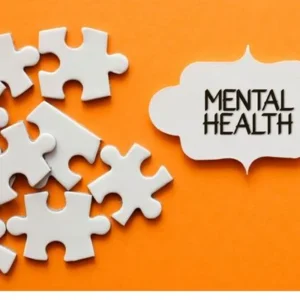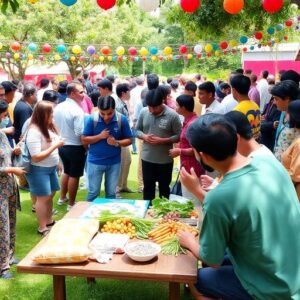Noncommunicable diseases (NCDs) and chronic illnesses such as diabetes, heart disease, and certain cancers are increasing not only in high-income nations but also in parts of Asia and sub-Saharan Africa. Although medical science continues to develop new treatments, these advancements alone are insufficient to reverse global health trends. As life expectancy rises, so do health risks associated with poor diets and unhealthy food systems.
A growing number of healthcare professionals, public health officials, and scientists are beginning to recognize that true health originates from the food system — particularly on farms. There is increasing consensus that strategic investment in agriculture can yield significant public health benefits. This concept, often referred to as the “food is medicine” movement, is gaining momentum, highlighting the role of improved agriculture and nutrition in reducing disease burdens and healthcare costs globally.
Historically, agricultural investment has focused on increasing food quantity to address hunger and food insecurity, especially among smallholder farmers. While boosting yields remains crucial, experts argue that food quality must also be prioritized to achieve better nutrition and health outcomes. Improved farming practices can raise incomes, lower food prices, and diversify diets—leading to healthier populations. Additionally, the push toward organic farming, which limits pesticide exposure and promotes ecological sustainability, may offer added health benefits, although scientific consensus on the nutritional superiority of organic foods remains under review.
Malnutrition and NCDs often share dietary roots. Poor diet quality—either from insufficient caloric intake or overconsumption of high-calorie, nutrient-poor foods—is a driving factor behind both undernutrition and obesity-related illnesses. As the BMJ journal notes, nearly one in three people globally face some form of malnutrition, a figure projected to increase. Industrial agricultural systems that prioritize efficiency and cheap calories have displaced diverse, nutrient-rich traditional diets, contributing to this dual burden of malnutrition and NCDs.
To reverse these trends, experts recommend shifting agricultural priorities toward growing more fruits, vegetables, and nuts. Promoting culturally traditional and diverse diets may also improve health outcomes. Initiatives such as biofortification — the cultivation of crops enriched with essential nutrients — are gaining traction. For instance, Grow Further supports a project in Zimbabwe that introduces iron-rich pearl millet to combat iron deficiency.
The “food is medicine” concept emphasizes the need to treat food as a central pillar of preventive healthcare. As this idea gains traction, doctors are increasingly incorporating dietary assessments into patient evaluations and, in some cases, advocating for prescriptions of healthy food. A comprehensive report from Tufts University highlights the potential of “Food is Medicine” (FIM) interventions to lower healthcare costs and prevent diet-related diseases through targeted nutritional programs.
Ultimately, these approaches begin at the farm. Investing in smallholder innovation, sustainable farming, and the production of nutrient-dense foods contributes to both improved food security and better health outcomes. The connection between agriculture and health is clear: by cultivating better food systems, societies can build a healthier, more resilient future.





